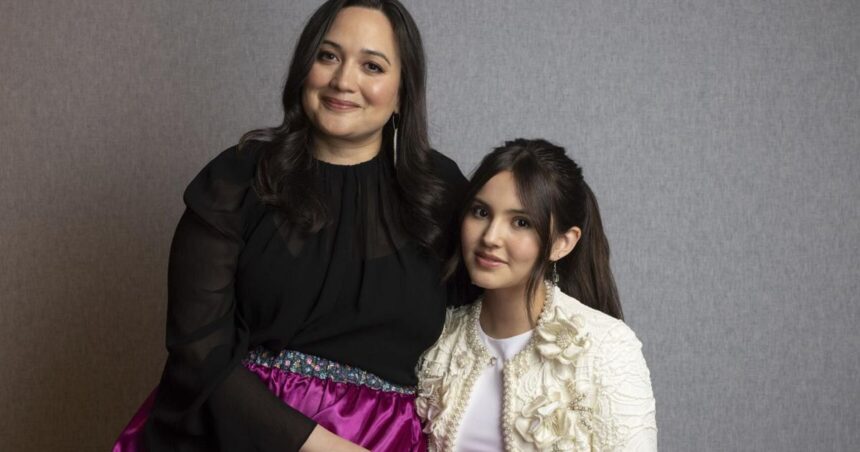LOS ANGELES — Lily Gladstone knows the gravity stories about what she calls the “epidemic” of missing and murdered Indigenous people have. But she also values humor in telling those stories.
In “Fancy Dance,” set for a limited theatrical release Friday and streaming release on Apple TV+ June 28, Gladstone plays Jax, who has cared for her niece, Roki, since her sister’s disappearance on the Seneca-Cayuga reservation in Oklahoma. As the pair searches for their loved one and prepares for Roki’s upcoming powwow, they share moments of unexpected levity baked into the emotional story.
Director Erica Tremblay, left, Lily Gladstone, right, and Isabel Deroy-Olson pose for a portrait to promote the film “Fancy Dance” on Sunday, June 16, 2024, in New York. (Photo by Matt Licari/Invision/AP)
“You would be very hard pressed to find any Indigenous person in North America today that is not touched by an element of the story very personally,” Gladstone said in a recent interview with The Associated Press. “We all know an MMIP (Missing and Murdered Indigenous Person). It’s something that we all collectively kind of grieve and work to fix. … We stick together and we survive through it by being funny, by finding humor in it.”
People are also reading…
Newcomer Isabel Deroy-Olson, who stars alongside Gladstone as Roki, said the film’s humor helps the audience get through the heavier moments of the story — which was also true for the actors.
“With all of us having a pretty similar sense of humor, we brought that behind the scenes, too, as a way to kind of lift each other up, and that’s so true in all of our communities,” she said. “We just we like to laugh with each other. Showing that both on and off screen was really important to us.”
“You have to keep joy, you have to keep laughter, and you have to keep our optimism in order to survive an ongoing genocide,” said director and co-writer Erica Tremblay.
Named after Jacqueline “Jax” Agtuca, who works for the National Indigenous Women’s Resource Center, Gladstone’s character grows frustrated with the lack of attention or care authorities put towards her sister’s case and turns to her community for help in the search. Gladstone said amplifying this kind of story on screen without it being “shoved down anybody’s throat” can inspire change.
“By being and embodying a character, a person who’s going through the steps of doing that work, you’re inviting the audience into that perspective, into that world where they get to learn about the jurisdictional loopholes and the inequities in society that are creating the obstacles for the characters they’re rooting for,” she said.
“You learn about that obstacle in a way that you have a desire to change it, instead of just hearing about it in a PowerPoint presentation or as a talking point on a news segment that you’re going to fast forward through because you’re more interested in what the score was for your team,” Gladstone continued.






